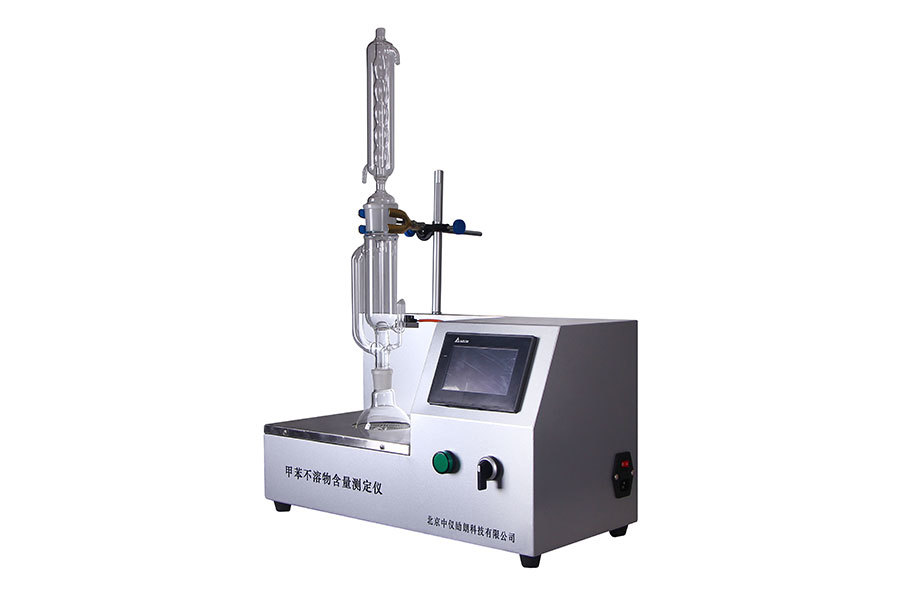Understanding Fully Automatic Toluene Quinoline Insoluble Matter Testing: A Key to Enhancing Electrical Instrument Performance
Oct 02,2025

---
In the field of electrical engineering, particularly in specialized instrumentation, the assessment of materials through various testing methods plays a crucial role in maintaining high-quality standards. One such important measurement is the determination of fully automatic toluene quinoline insoluble matter. This testing method is widely recognized for its ability to evaluate the purity and performance reliability of electrical components.
Fully automatic toluene quinoline insoluble matter testing is a sophisticated analytical procedure that quantifies the insoluble residues formed when specific hydrocarbons are subjected to toluene and quinoline under controlled conditions. These residues can interfere with the performance of electrical equipment, leading to potential failures or inefficiencies. By utilizing fully automatic systems, technicians can ensure accurate, repeatable results that are essential for quality control in manufacturing processes.
The fully automated aspect of this testing method offers several advantages. Firstly, it minimizes human error, which is a common concern in manual testing procedures. Automated systems can efficiently handle sample processing, measurement, and data recording, streamlining the workflow and significantly reducing the time required for testing. This efficiency is particularly important in industrial settings where large volumes of components need to be assessed quickly and accurately.
Moreover, the integration of advanced technology in fully automatic toluene quinoline insoluble matter testing allows for enhanced precision. Modern instruments are equipped with sophisticated sensors and software that provide real-time analysis and data interpretation. This capability not only improves the accuracy of the results but also facilitates better decision-making in terms of quality control and risk management.
In addition to operational efficiency and precision, understanding the results obtained from fully automatic toluene quinoline insoluble matter testing is vital for maintaining compliance with industry standards and regulatory requirements. Manufacturers and engineers must be keenly aware of the acceptable levels of insoluble matter in their products, as exceeding these limits can result in significant operational issues and safety hazards.
In conclusion, fully automatic toluene quinoline insoluble matter testing is an indispensable tool in the electrical instrumentation industry. By employing this method, professionals can ensure the reliability and performance of electrical components, thereby safeguarding against potential failures and enhancing overall equipment longevity. The benefits of automation in this context cannot be overstated, as it not only improves accuracy and efficiency but also contributes to the continuous advancement of industry standards. As the electrical engineering sector evolves, embracing such innovative testing methods will be key to staying competitive and delivering high-quality products.
In the field of electrical engineering, particularly in specialized instrumentation, the assessment of materials through various testing methods plays a crucial role in maintaining high-quality standards. One such important measurement is the determination of fully automatic toluene quinoline insoluble matter. This testing method is widely recognized for its ability to evaluate the purity and performance reliability of electrical components.
Fully automatic toluene quinoline insoluble matter testing is a sophisticated analytical procedure that quantifies the insoluble residues formed when specific hydrocarbons are subjected to toluene and quinoline under controlled conditions. These residues can interfere with the performance of electrical equipment, leading to potential failures or inefficiencies. By utilizing fully automatic systems, technicians can ensure accurate, repeatable results that are essential for quality control in manufacturing processes.
The fully automated aspect of this testing method offers several advantages. Firstly, it minimizes human error, which is a common concern in manual testing procedures. Automated systems can efficiently handle sample processing, measurement, and data recording, streamlining the workflow and significantly reducing the time required for testing. This efficiency is particularly important in industrial settings where large volumes of components need to be assessed quickly and accurately.
Moreover, the integration of advanced technology in fully automatic toluene quinoline insoluble matter testing allows for enhanced precision. Modern instruments are equipped with sophisticated sensors and software that provide real-time analysis and data interpretation. This capability not only improves the accuracy of the results but also facilitates better decision-making in terms of quality control and risk management.
In addition to operational efficiency and precision, understanding the results obtained from fully automatic toluene quinoline insoluble matter testing is vital for maintaining compliance with industry standards and regulatory requirements. Manufacturers and engineers must be keenly aware of the acceptable levels of insoluble matter in their products, as exceeding these limits can result in significant operational issues and safety hazards.
In conclusion, fully automatic toluene quinoline insoluble matter testing is an indispensable tool in the electrical instrumentation industry. By employing this method, professionals can ensure the reliability and performance of electrical components, thereby safeguarding against potential failures and enhancing overall equipment longevity. The benefits of automation in this context cannot be overstated, as it not only improves accuracy and efficiency but also contributes to the continuous advancement of industry standards. As the electrical engineering sector evolves, embracing such innovative testing methods will be key to staying competitive and delivering high-quality products.
PREVIOUS:
Contact Us








